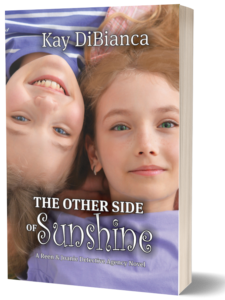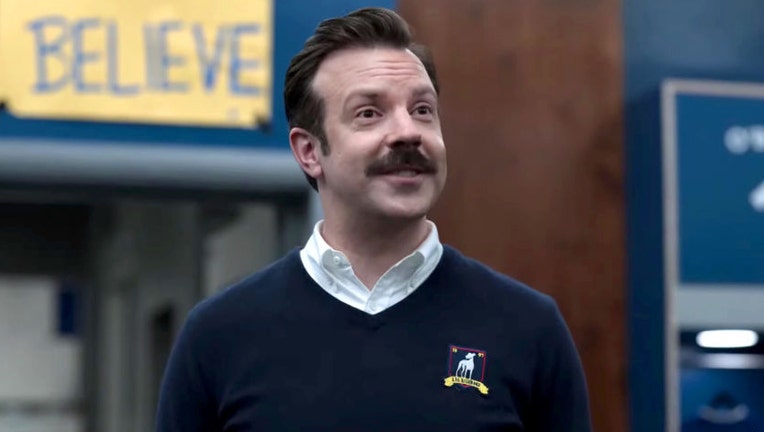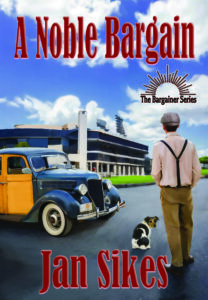Along with narrative, dialogue is the lifeblood of fiction, and today’s Words of Wisdom presents advice on this crucial subject. First, Elaine Viets offers tips on writing realistic dialogue. Then, Joddie Renner gives advice on dialogue tags. Finally, James Scott Bell presents a terrific “random dialogue exercise” to take our dialogue in unexpected directions. The original posts are date-linked from their respective excerpts. Afterwards, I’ll have a few questions as additional fodder for today’s discussion.

(1) Listen to How People Talk
Go to a bar, restaurant or a coffee shop or a McDonald’s and listen to conversations. I love to eavesdrop on conversations. They help me pick up the rhythm of real speech – and sometimes I hear things I can use. Like the man at the bar who talked to his friend about how to kill his wife. They discussed various fatal scenarios until he finally concluded that he should “accidently” push her radio off the shelf into water when she was in the tub. I was about to call the police when I realized the two men were plotting a novel.
(2) Don’t be too realistic
People say “uh,” and “er” and rarely speak perfectly. They interrupt one another. You need to make your dialogue believable without making it absolutely realistic.
(3) Beware of stereotypes and accents
If your character speaks with an accent, point it out for a sentence or two: He spoke with a heavy Russian accent – but don’t make your readers wade through it for pages.
(4) Cut the small talk
You don’t need all those hellos and good-byes. Normally, they add nothing to the story. If your scene starts with a wife coming home from work and it begins this way:
“Hi,” she said.
“How are you?” he asked. “How was your day?”
Skip the hellos and start with “How was your day?” And let us know if the couple kiss. That could be a key to their marriage.
(5) Break up the dialogue with action
If two characters are talking over breakfast, have them pour syrup on their pancakes, sugar their coffee and cut up their bacon between sentences.
(6) Avoid dialogue tags
She sputtered. He chortled. She raged. He observed. She exclaimed. He interjected. She purred. These are all dialogue tags. Now forget them.
Dialogue tags attribute a line of dialogue to one or other of the characters, so that the reader always knows who is speaking. Tags should be invisible.
All you need are “he said” and “she asked.”
(7) Avoid the “You know, Jim,” syndrome
That’s an information dump disguised as regular dialogue: “You know, Jim, if you want a tax break, equipment that qualifies for the Residential Renewable Energy Tax Credit includes solar, wind, geothermal and fuel-cell technology.” Nobody talks like that in casual conversation – not even a salesperson.
Elaine Viets—March 11, 2019
1. Avoid overusing dialogue tags. Instead of constantly using he said or she said (or the name and said), replace them often with action beats, which will also help bring the scene alive:
He closed the door very quietly. Too late.
She stood there, hands on hips. “Where’ve you been?”
“Don’t start.” He took off his coat and hung it up.
The action immediately before or after the words tells us who’s talking.
Or, if it can be done without confusing the readers, just leave out the dialogue tag or action beat. Context often makes it obvious who’s speaking.
2. The best dialogue tags are the simple he said and she said (or asked), or with the name: John said, Carol said. These simple dialogue tags don’t draw attention to themselves or interrupt the story line, as they’re almost invisible. Avoid fancy tags like queried, chortled, alleged, proclaimed, conjectured, affirmed, etc., which can be distracting. But I do suggest using verbs that accurately and quickly describe how the words are delivered, like whispered, shouted, yelled, screamed, or stammered.
3. You can’t use words like laughed or grinned or smiled or grimaced or scowled as dialogue tags.
These are both incorrect:
“You look great,” he grinned.
“Why, thank you,” she smiled.
Why don’t they work? Because smiling is not talking; you can’t “smile” or “grin” words.
Change to:
“You look great,” he said, grinning.
“Why, thank you.” She smiled at the compliment. (Note period and capital “She”)
Or “Why, thank you,” she said, then smiled at him.
4. Use adverbs very sparingly.
Avoid:
“I’m sorry,” she said apologetically.
“Come here,” he said imperiously.
“I’m in charge,” she said haughtily.
Instead, make sure the words they’re saying and any actions convey the feelings you wish to express.
5. Off-topic, but do not put quotation marks around thoughts. That’s a topic for another post.
TWO CURRENT STYLE TRENDS (Jodie’s observations):
- Contemporary North American fiction seems to avoid the reversed form, “said Carol”, in favor of “Carol said.” The reversed form seems to be more British and also considered kind of archaic, which makes it great for historical fiction.
- Most contemporary North American fiction writers, with the notable exception of Lee Child, seem to put most dialogue tags after the words spoken:
“Let’s go,” Tony said.
Rather than before:
Tony said, “Let’s go.”
These last two points are of course just my observations of common usage, not rules. But aspiring or debut authors would do well to stick with what seems to be in favor, to give a contemporary feel to your novel. Of course, if you’re writing historical fiction, go for the older “said Elizabeth” form.
Jodie Renner—June 19, 2014
Here’s a little exercise I teach in my workshops: take one of your dialogue-heavy scenes. Go to the middle and select a line at random. Now, pull down a random novel from your shelf. Open to a random page. Flip around until you find some dialogue. Pick one line of that dialogue.
NOW: substitute the line you just read for the line you selected in your scene. THEN: figure out how to justify it!
NEXT: Tweak the line so it fits the character. FINALLY: Rewrite the rest of the scene. Do this as a way to create or explore deeper levels of story or character. You may end up not using the dialogue line itself, but you will have opened up new vistas in your story and given your imagination a chance to play.
But if you do use the line, here is a big benefit: It creates a surprise for the reader. And surprise is the greatest page-turning prompt of all. Predictability is dull. So throw the reader off every now and then with something out of the blue.
Another benefit: you can use this exercise whenever you hit bad old writer’s block. Don’t know where your story is going? Having trouble plotting the next few scenes? Not sure who a character is? Try this exercise and get the mental pistons firing again.
Here’s a clip from my current WIP:
“Isn’t the view gorgeous?” she said.
“You better get right to it,” Dylan said, “because this is the last time we meet.”
“You can’t mean that.”
“I’m prepared to walk away.”
“I don’t think so, dear.”
“Watch me.”
“You haven’t even seen what I have.”
“I don’t care—”
“Or heard.”
“Heard?”
“So many things. You can be happy. We can be happy.”
“Look, you’re sick and you need help.”
“Don’t—”
“I know people. I can get you help.”
Now I perform the exercise. I’ll show you what I came up with using four very different novels off my shelf.
Using a line from An American Tragedy by Theodore Dreiser (1925):
“Or heard.”
“Heard?”
“So many things. You can be happy. We can be happy.”
“Look, you’re sick and you need help.”
“Oh, it doesn’t amount to anything, really. We just quarrel, that’s all, once in awhile.”
From The Gods Themselves by Isaac Asimov (1972):
“Or heard.”
“Heard?”
“So many things. You can be happy. We can be happy.”
“Look, you’re sick and you need help.”
“Sexually?”
From The Maltese Falcon by Dashiell Hammett (1929):
“Or heard.”
“Heard?”
“So many things. You can be happy. We can be happy.”
“Look, you’re sick and you need help.”
“Yeah, she had it tucked under her arm when she paid me.”
From L.A. Requiem by Robert Crais (1999):
“Or heard.”
“Heard?”
“So many things. You can be happy. We can be happy.”
“Look, you’re sick and you need help.”
“Well, we’re going to find out, but right now we’ve got a maniac to get off the street.”
Well now! Each one of these lines takes us in a different direction, doesn’t it?
The first one gets me thinking along the lines of Psycho, and multiple personalities.
The second one gives me a whole new aspect of character.
The third one is so obscure I have to do some more cogitating. I try to figure out why this woman would have been paid, and by whom. That’s a whole new plot point! That she could be working with someone. So I spend a few minutes jotting down ideas about that. Also, what did this mystery woman have tucked under her arm?
Since I’m writing a thriller, the last example really got my imagination scrambling. Which is, of course, the point of this exercise.
If I decide to use one of these lines, I’ll tweak it to make it consistent with the character’s voice.
But, after all this, I may just go back to the way I had it before. But wouldn’t that be wasted effort? Far from it! Because the writer’s mind is always stronger after this kind of workout—lithe, supple, and ready for action … hmm, maybe I should write a romance.
But not now, because I’m in the middle of my WIP and I’ve got a maniac to get off the street.
James Scott Bell—May 21, 2017
***
- What do you think of Elaine’s advice on making dialogue realistic? Any additions to her tips?
- How do you handle dialogue tags?
- What do you think of Jim’s random dialogue exercise? Is this something you’ll try? (I certainly will.)
- Any general advice on making dialogue more effective and engaging?


 Coming Soon!
Coming Soon! 










 Jan Sikes is a multi-award-winning author, who writes compelling and creative stories from the heart.
Jan Sikes is a multi-award-winning author, who writes compelling and creative stories from the heart.
